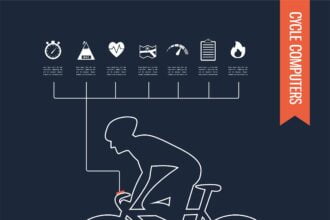
A resident from MedStar Washington Hospital Center practices her laparoscopic technique.

A resident from MedStar Washington Hospital Center practices her laparoscopic technique.
In a previous ETY post, Medical Education and Classrooms of the Future, I briefly touched on the value of simulation in training healthcare professionals. Academic medical centers across the country continue to funnel resources toward high-tech simulation centers that put providers–young and old–in learning environments that spare the patient as test subject and encourage skill mastery through practice. Others are complementing high-tech learning with team-based drills, allowing multidisciplinary teams to practice emergency procedures long before they are faced with a similar real-time event. One such center, SiTEL, is one of many entities within the MedStar Health system in the Washington DC and Maryland area that is helping redefine the science of safety through translational research, education and innovation.
Dr. Tamika Auguste, an OB/GYN physician, is one of many innovators within the health system. Auguste is training residents and fellows at the MedStar Washington Hospital Center and Georgetown University Medical Center, as well as OB/GYN providers throughout MedStar, using technological and team-based simulation of obstetric and gynecologic procedures and emergencies. Skill development is only part of the equation, as the ability to anticipate next steps and effectively communicate with patients, and as a team, is what elevates care to new levels.
What is truly amazing is not so much the current technology being utilized, as Auguste will tell you that sometimes low-tech solutions create a more realistic feel of being “inside the body”, but rather the results from her MOST (MedStar Obstetrical Simulation Training) program, and the related reduction in adverse events for Moms and babies. Tamika, amiable and happy to relate her efforts even post-call when we spoke, shared that the MOST program focuses on teams who need to complete a set of tasks in rapid order to save the life of a Mom or baby. Her energy and enthusiasm is infectious in and of itself, but the results showing a reduction in the number of shoulder dystocia events at her hospitals are worth smiling about whether a provider or patient in a MedStar hospital for OB/GYN care.

Residents from MWHC and MGUH watch as a colleague practices hysteroscopy skills.
A simple definition of shoulder dystocia, a sometimes unavoidable complication during childbirth, is a delay in labor due to the baby’s shoulder becoming lodged behind Mom’s pelvis. According to Auguste, the way a team responds to this occurrence is what can change outcomes for all involved. MOST training at all MedStar hospitals completed in 2012, and both brachial plexus injuries and clavicle fractures have been reduced overall. The infant mortality rate in Washington DC has also declined from 13.1 in 2007 to 8.0 according to 2010 data. And while Auguste won’t take credit for the drop, the fact remains that in 2010 over half of babies born in Washington DC came into the world at the two MedStar Hospitals (Washington Hospital Center and Georgetown University Medical Center).
MedStar programs to create simulation and training of obstetric procedures and emergencies reach deeper than just the training of healthcare providers and the care of Moms and babies at MedStar. In addition to MOST, the following programs Auguste oversees also reach into the community, as well as the OB/GYN community across the US:
- Resident, Fellow and Midwife Simulation Labs
- Society of Maternal and Fetal Medicine Postgraduate Course Development
- ACOG Simulation Consortium Member
- Community Outreach Partnership – Unity Healthcare
- Special Moms/Special Babies (SMSB)
- Teen Alliance for Prepared Parenting (TAPP)
- MedStar Georgetown University Hospital – Girl Talk 2 Program
For more information on residency programs or OB/GYN simulation training, contact Dr. Tamika Auguste at MedStar Washington Hospital Center. Meanwhile, stayed tuned for future examples of medical education simulation and training–both high-tech and low-tech examples–and please share what you have found along the way.
First posted on Educate the Young
![]()








